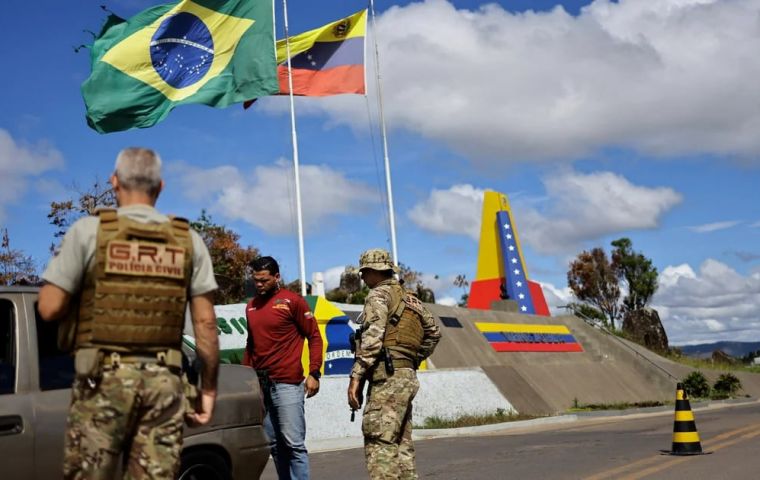MercoPress. South Atlantic News Agency
Brazil reinforcing military presence in Roraima bordering Venezuela and Guyana
 The deployment of troops and military equipment to Roraima began after tensions escalated between Venezuela and Guyana over the Essequibo
The deployment of troops and military equipment to Roraima began after tensions escalated between Venezuela and Guyana over the Essequibo A total of 28 armored vehicles have been deployed to the State of Roraima as the government of President Luiz Inácio Lula da Silva takes additional precautions amid mounting tension between Venezuela and Guyana over the oil-rich Essequibo region, Agencia Brasil reported.
Under Operation Roraima, the Brazilian Army has relocated some of its forces to reinforce the Northern Military Command and the Amazon Military Command by 10%.
“The arrival of the armored vehicles is the result of the Brazilian Army's planning to reinforce and prioritize the Amazon,” the Army's Social Communication Centre said in a statement. In addition, the military unit in Roraima has been upgraded from a squadron to a regiment. “After the complete transformation of the unit, scheduled for 2025, the Regiment will have three squadrons and a staff of around 600 soldiers,” the Army said.
The gear left Campo Grande on Jan. 17 and arrived in Manaus last week after traveling more than 3,500 kilometers. They were then transported to Roraima, Agencia Brasil also wrote.
The convoy that arrived in Boa Vista (RR) was made up of 14 Guaicurus 4x4 Multitask Armored Vehicles (VBMT), all equipped with remotely controlled weapons systems, thermal vision optics and command and control modules, as well as eight Guarani Medium Wheeled Personnel Carriers (VBTP-MR), six EE-9 Cascavel Medium Wheeled Reconnaissance Armored Vehicles (VBR-MSR), and other administrative vehicles.
The deployment of troops and military equipment to Roraima began after tensions escalated between Venezuela and Guyana over the Essequibo territory, a controversy dating back to the 19th century that was reignited in December when Venezuela held a referendum whereby it was approved to annex the 160,000 km² territory in the hands of the former British colony and makes up 75% of present-day Guyana.
In 1966, the United Nations brokered the Geneva Agreement - shortly after Guyana's independence - according to which the region's fate is still “to be negotiated.”
On Dec. 15, 2023, Presidents Nicolás Maduro of Venezuela and Irfaan Ali of Guyana pledged not to use force against each other to resolve the dispute. Brazil helped mediate the meeting and a new meeting between the two presidents is expected to take place next month.
(Source: Agencia Brasil)




Top Comments
Disclaimer & comment rulesCommenting for this story is now closed.
If you have a Facebook account, become a fan and comment on our Facebook Page!